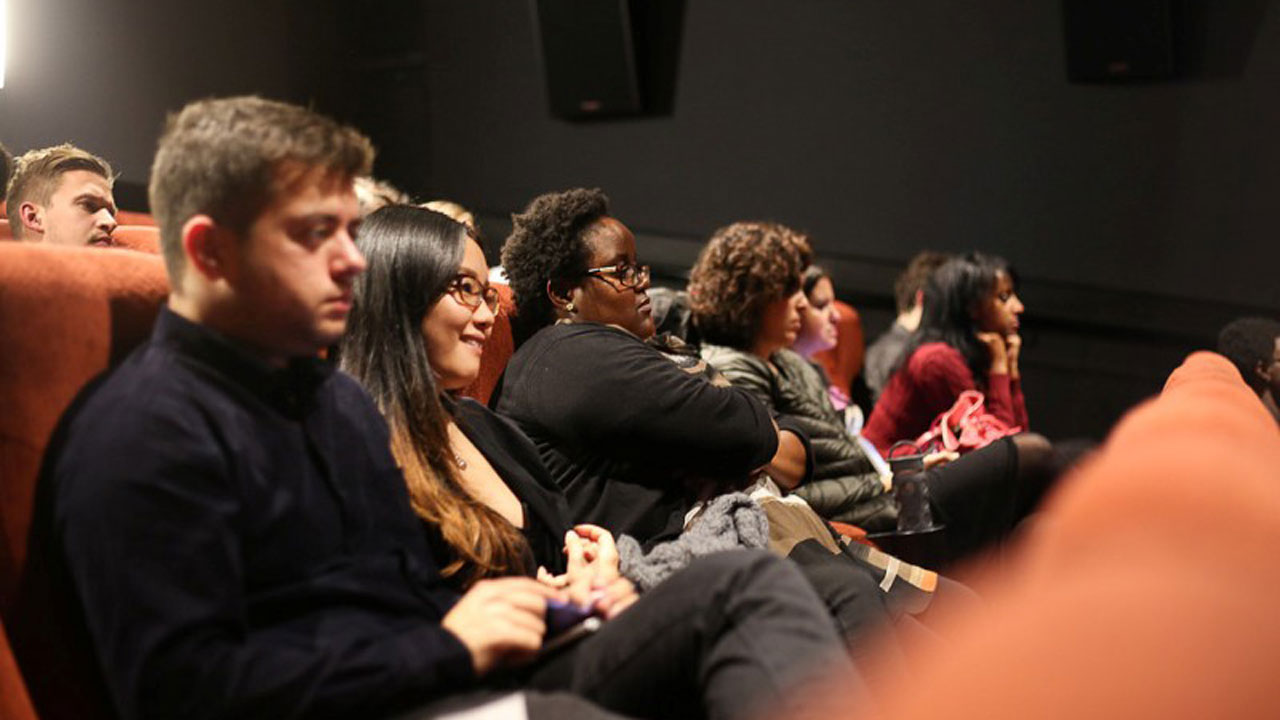
The Royal African Society’s Film Africa festival now in its 8th year, is held annually across various cinemas in London. It presents a fair summary of promising and recognized talents from the continent’s actors and filmmakers.
To navigate this year’s offerings of 39 films from 15 different countries, the festival programmers divided the lot into main four strands – “Afro Bubblegum: Kenya’s Movie Mavericks”, “The Naija New Wave”, “Young Rebels” and “[Up]Rooted”. Awards were also given for “The Baobab Award For Best Short Film” and “The Film Africa Award For Best Short Film”.
At the beginning of her documentary “New Moon” (Kenya), poet and filmmaker Philippa Ndisi-Herrmann stated her intentions clearly: “I’m raising money for a documentary I don’t want to make, to be somewhere I don’t want to be. The film we’re watching is the documentary itself and the location is Lamu, a Kenya port town whose inhabitants grapple with the introduction of coal fuel from South Africa to replace the hydropower the community has long depended on.”
But there is another major reason or context to Ndisi-Herrmann’s pursuit: she is distraught after being jilted by a lover and still confused as to why. For this reason the big-hearted trip to Lamu and the film project is not doubt a void-filler and emotional recourse. Ndisi-Herrmann is also unsure how exactly to approach her big issue documentary until a friend suggests she focuses on a “Muslim boy”, it is inferred, as a way into the story and this she does, accompanying two young boys and their mother through the mundanity of their daily routine from school to work with no apparent worry about the controversy over coal except in one heated scene where the mother, while on an outreach program to discourage the new initiative, is strongly antagonised by a local who is convinced she has been paid off to do so by the South African importers.
There is no real correlation between the coal energy and the simple and content lives the young family lead, not even a strained one about sustainability and the needless change to local life. Instead, more emphasis is paid to Ndisi-Herrmann’s growing love for Islam (despite her stance against polygamy) and, in particular, the mysticism of Sufism and the comforting wisdom of Rumi’s poetry. Ndisi-Herrmann’s protest – “I’m here for the film, I’m not here for anything else” – few minutes into the documentary does little to dispel the suspicion that she has unfairly shackled her personal strife and affirmation to a big societal issue – even when she does not shy away from the fact.
Divorced from any verbal dialogue, “A Hotel Called Memory” forces and encourages the viewer to figure out the story in scene after scene, filling out the blank spaces that aren’t really blank on account of the strongly evocative acting and incidental music that includes reggae, trap, jazz, and naturalist sounds (blowing winds, religious worship, splashing water and even silence) all of which are combined into a marvel of sound editing, directed with warmth and sensitivity by Akin Omotoso who also stars. The dialogue is limited to texting with the actual words on the screen as if they were subtitles but are in fact compasses for plot progression.
The first two are from Lola (Nse Ikpe-Etim) informing Wale (Akin Omotoso) that she wants a divorce and sole custody of their son who is on holiday with her on a beach side resort in Zanzibar with a new lover who doesn’t seem to do much during the day but DJs at the seaside night parties. The plot of the film shifts gear once Wale arrives Zanzibar to resolve his marriage crisis but the musical and visual tonality of the film remains consistent. The escapist comfort of a beach side resort, it’s palm trees, the cool evening breeze, the warm colours of brown wood, the soft grays of sundown, the blue ocean water and white sand which fill up each frame, along with the actors brown skin-shades makes for a rich and pleasing viewing experience that should get a nod for “Best Cinematography” for cinematographer Robert Wilson and colourist Kimberly Hobbs, but will probably not because of the full attention given to the complete absence of dialogue. This is indeed a real achievement of cinema-making especially when one still remains engrossed in the story being told of the breakdown of a long relationship, the emotional tear and existential panic it brings, and, thankfully, the possibly of new beginnings.
The festival, however, is far from an exhaustive account because of the number of films from English-speaking countries. A “Film Africa: Paris” is likely to offer an equally impressive range, but with the combined sensibilities of French filmmaking and where it meets those of Senegal, Ivory Coast and the likes, as it would be for a “Film Africa: Lisbon” and the lusophone countries of Mozambique, Angola and others.
The festival remains a delight every year it occurs and continues to be a great opportunity to see a plethora of films by contemporary African filmmakers. A real treat if you live in London.
[ad unit=2]






